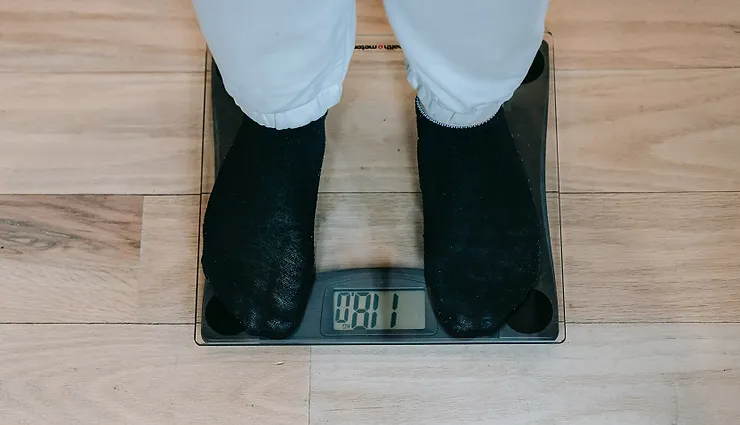Struggling with an eating disorder can feel isolating, overwhelming, and even impossible to overcome—but recovery is possible. If you’re reading this, you may already be on the most important step: realizing that you need help. That recognition alone takes incredible courage, and you should be proud of yourself for getting to this point.
Understanding Eating Disorders
There are many different types of eating disorders, but most are driven by a deep fear of gaining weight and a distorted relationship with food, body image, and self-worth. Common eating disorders include:
-
Anorexia nervosa – characterized by extreme food restriction and fear of weight gain
-
Bulimia nervosa – involving cycles of binge eating and purging
-
Binge eating disorder – marked by episodes of uncontrollable eating without purging
-
Avoidant/restrictive food intake disorder (ARFID) – when a person avoids food due to sensory issues, fear of choking, or past trauma
Regardless of the type, eating disorders often lead to dangerous behaviors like starvation, excessive exercise, purging, and substance use. Left untreated, they can cause serious medical complications such as malnutrition, organ failure, or even death.
Your Body Is Not the Enemy
Having an eating disorder often distorts the way you view your body. You may become obsessed with your weight or appearance, believing you’re not good enough unless you look a certain way. But here’s the truth: your body does not define your worth.
You are more than a number on a scale or the size on your clothing tag.
You are smart, kind, resilient—and you deserve to feel well.
Let’s talk about what healing looks like and how you can take your first steps.
🚨 Why It’s Critical to Get Help
Eating disorders are serious medical conditions that rarely go away on their own. Without treatment, you may face:
-
Severe malnutrition
-
Heart complications
-
Hormonal imbalances
-
Bone density loss
-
Depression and anxiety
-
Increased risk of self-harm or suicide
Some individuals with severe eating disorders may require hospitalization and nutritional intervention—including feeding tubes. Sadly, some do not survive. That’s why early intervention is so important.
🛠️ How to Start Your Recovery Journey
If you’ve come to the realization that your eating disorder is harming you, that is a powerful step. Healing doesn’t happen overnight, but with support, time, and professional care, it can happen.
Here are the best places to start:
1. Reach Out to a Trusted Person
Speak with someone you trust—a friend, family member, teacher, or mentor. Let them know how you’ve been feeling and what you’ve been doing. You don’t need to share everything at once. Just begin the conversation.
Opening up is hard, but it’s also the first step toward healing.
2. Talk to a Healthcare Provider
Make an appointment with your doctor, therapist, or a mental health professional who specializes in eating disorders. They can:
-
Diagnose your condition
-
Assess any physical complications
-
Refer you to dietitians, psychiatrists, or inpatient programs if needed
-
Help you develop a personalized treatment plan
In many cases, recovery includes therapy, nutrition education, medication, and sometimes structured meal support or hospital care depending on severity.
🧠 Therapy & Mental Health Support
Therapy is essential in helping you:
-
Identify and change harmful thought patterns
-
Learn healthy coping skills
-
Heal from trauma, anxiety, or depression that may contribute to the eating disorder
-
Rebuild a positive relationship with food and your body
Types of therapy that may be recommended:
-
Cognitive Behavioral Therapy (CBT)
-
Dialectical Behavior Therapy (DBT)
-
Family-Based Therapy (FBT)
-
Trauma-informed approaches
🍽️ Nutrition Counseling
Working with a registered dietitian who specializes in eating disorders can help you understand:
-
Your body’s nutritional needs
-
How to safely restore your physical health
-
How to challenge harmful food rules
-
How to reduce guilt around eating
🌐 Support Resources
You are not alone. There are many resources available:
-
Support Groups: Local or online, these provide peer support from people who understand what you’re going through.
-
Online Communities: Look for safe, moderated forums or social media groups focused on recovery.
-
Eating Disorder Helplines:
-
National Eating Disorders Association (NEDA): 1-800-931-2237
-
Crisis Text Line: Text “NEDA” to 741741
-
Project HEAL and ANAD also offer support
-
💪 You Are the Most Important Part of Your Recovery
Treatment is only as effective as your willingness to engage in it. Healing requires effort, openness, and support—but you don’t have to do it all at once, and you don’t have to do it alone.
-
Let others support you
-
Be patient with yourself
-
Trust the process
-
Celebrate small victories
🧭 Final Thoughts: Healing is Possible
You can recover. Your eating disorder does not define who you are or what your future holds. With the right treatment and support, you can rebuild your relationship with food, your body, and yourself.
You are worthy of care.
You deserve to feel strong and free.
You are not alone.


